Endoscopic Management of Inflammatory Bowel Disease (IBD) in Mumbai, India
Your digestive system plays a crucial role in breaking down food, absorbing nutrients, and maintaining overall health. When conditions like Inflammatory Bowel Disease (IBD) affect this delicate system, the impact can be far-reaching—causing pain, fatigue, weight loss, and long-term complications if not managed properly.
Today, patients have access to advanced, minimally invasive procedures for IBD. Among the experts leading this transformation in India is Dr. Vipulroy Rathod who specializes in endoscopic approaches to manage both Crohn’s disease and ulcerative colitis effectively.
Dr. Vipulroy Rathod, an acclaimed gastroenterology specialist, says:
“Inflammatory Bowel Disease isn’t just a digestive issue—it’s a chronic condition that can significantly reduce a patient’s quality of life. Early detection and timely endoscopic intervention are key. With today’s advanced technology, we can diagnose and treat IBD without major surgery, helping patients heal faster, with fewer risks and a better chance at long-term remission.”
Dr. Vipulroy Rathod Explains Types of
IBD That Are Treated by Him

1. Crohn’s Disease
Crohn’s disease can affect any part of the digestive tract, from the mouth to the anus, but it most commonly involves the small intestine and colon. Symptoms include persistent diarrhea, abdominal pain, fatigue, and weight loss. It may cause patchy areas of inflammation that extend deep into the layers of the bowel. Complications may include strictures, fistulas, and nutritional deficiencies.
2. Ulcerative Colitis
Ulcerative colitis mainly impacts the colon and rectum. It causes constant inflammation and ulcers in the deepest lining of the colon. Symptoms often include bloody stools, frequent bowel movements, and abdominal cramping. If left untreated, it can increase the risk of colon cancer.
“Each case of IBD is different,” explains Dr. Vipulroy Rathod, Mumbai’s eminent Gastroenterologist, “Understanding the location, extent, and severity of the inflammation is crucial in determining the right treatment strategy. That’s where endoscopy becomes an indispensable tool for diagnosis and guiding therapy.”
Endoscopic procedures are redefining how IBD is diagnosed, monitored, and even treated.
Advanced Endoscopic Techniques for Managing IBD Offered by Dr. Vipulroy D. Rathod
Dr. Rathod offers several advanced techniques that provide accurate results, cause less discomfort, and support faster recovery than conventional surgery:
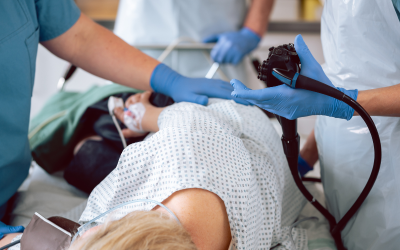
- Identify inflammation, ulcers, and other abnormalities
- Guide tissue sampling for accurate diagnosis
- Monitor disease progression or healing
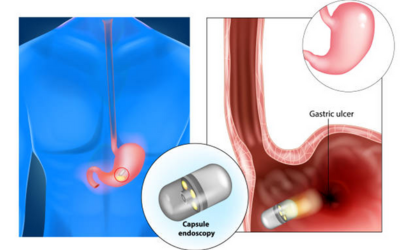
Capsule Endoscopy for Crohn’s Disease This cutting-edge, non-invasive test involves swallowing a small capsule equipped with a camera. It’s especially helpful when inflammation is suspected in the small intestine.
- Captures thousands of images as it moves through the GI tract
- Offers insights where traditional scopes can’t reach
- Ideal for early detection of Crohn’s in hard-to-access areas
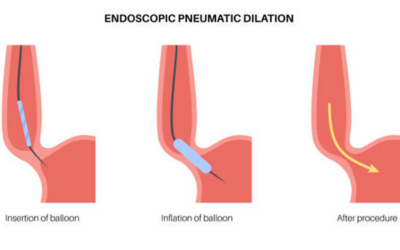
Endoscopic Balloon Dilation Used to treat intestinal strictures (narrowed segments) caused by chronic inflammation.
- Expands the narrowed area to ease symptoms like obstruction or pain
- Reduces the need for surgery in many cases
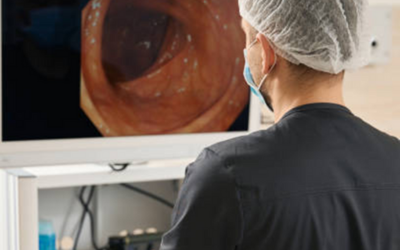
Endoscopic Ultrasound (EUS)
- Combines endoscopy with high-frequency ultrasound to assess deeper layers of the bowel
- Helps differentiate between IBD and other conditions
- Useful for evaluating complex Crohn’s cases involving adjacent tissues
“The beauty of endoscopic methods lies in their dual purpose—diagnostic and therapeutic,” adds Dr. Rathod. “From detecting inflammation early to treating strictures and tracking response to therapy, these techniques empower patients and clinicians alike.”
Tailored IBD Treatment Strategies by Dr. Vipulroy D. Rathod
There is no one-size-fits-all approach when it comes to IBD. That’s why Dr. Rathod follows a patient-centered model of care:

Ongoing Monitoring
Regular endoscopic evaluations to track healing and prevent flare-ups
Adjustments in therapy based on individual response

Multidisciplinary Support
Coordination with dietitians, radiologists, and colorectal surgeons
Mental health referrals if anxiety or depression accompanies chronic illness
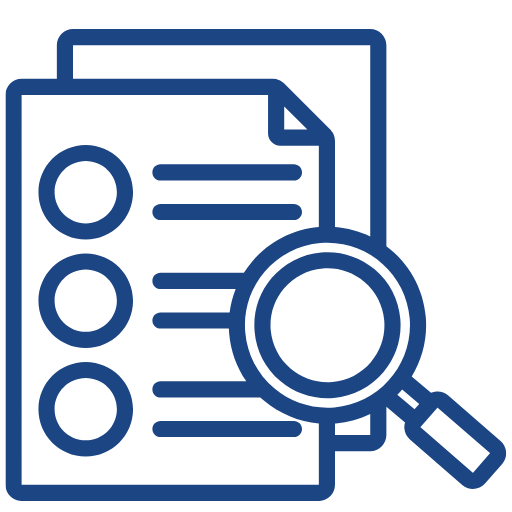
Detailed Assessment
Thorough history-taking, lab tests, and imaging Endoscopy to evaluate disease location and severity Screening for associated complications

Detailed Assessment
Customized Treatment Planning
Depending on whether it’s endoscopic treatment endoscopic treatment
for Crohn’s disease or ulcerative colitis, Dr. Rathod may recommend:
Medication guidance (anti-inflammatories, biologics)
Endoscopic interventions when necessary
Lifestyle changes and dietary modifications
“Managing IBD isn’t just about treating symptoms—it’s about restoring quality of life,” says Dr. Vipulroy Rathod, a trusted name in advanced gastrointestinal care in Mumbai. “By tailoring care plans to the patient’s needs, we help them regain control, reduce hospital visits, and stay active in their personal and professional lives.”
Endoscopy doesn’t end at diagnosis—it sets the stage for long-term disease control.
Post-Endoscopy Care and Long-Term Management of IBD
Recovery Guidance
Patients are monitored after the procedure for any immediate discomfort
Instructions are given on when to resume eating and medications
Medication Adjustments
Endoscopy results may influence changes in therapy—adding or reducing medications
Biologics or immune-modulators may be introduced based on inflammation levels
Follow-Up Scheduling
Surveillance colonoscopies are planned at regular intervals
Additional tests may be needed if new symptoms arise
Ongoing Support and Dialogue
Patients are educated on flare triggers, nutrition, and symptom tracking
Lifestyle counseling includes smoking cessation, stress reduction, and physical activity
“The success of IBD treatment lies in continuity of care,” notes Dr. Rathod, a gastrointestinal expert in Mumbai. “Even when symptoms are under control, monitoring is crucial to prevent complications like colorectal cancer or strictures.”
Why Choose Dr. Vipulroy Rathod for Endoscopic
Management of IBD?
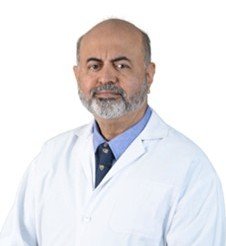
Here’s what makes Dr. Rathod one of the most sought-after experts for Inflammatory Bowel Disease management in Mumbai:
Three Decades of Experience:
A veteran in advanced GI endoscopy.
Pioneer in Capsule Endoscopy:
Early adopter of capsule endoscopy for Crohn’s disease in India.
High Success Rates:
Track record of achieving remission in complex IBD cases.
Patient-Centric Philosophy:
Empathetic consultations and detailed explanations.

Comprehensive Facility:
Equipped with the latest diagnostic and therapeutic tools.
Training and Mentorship:
Has trained numerous doctors in IBD care and endoscopy.
“IBD may be a lifelong condition, but it doesn’t have to control your life,” emphasizes Dr. Vipulroy Rathod from Mumbai. “With the right expertise and timely endoscopic care, we can manage the disease effectively and improve your quality of life.”
Still have questions? Let’s answer some common—and not-so-common—queries patients often have.
Frequently Asked Questions
Disclaimer: The information shared in this content is for educational purposes only and not for promotional use.
